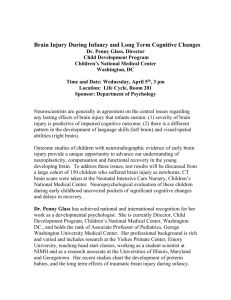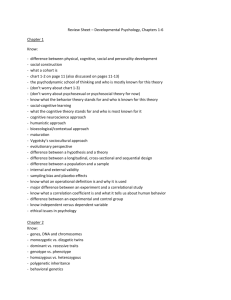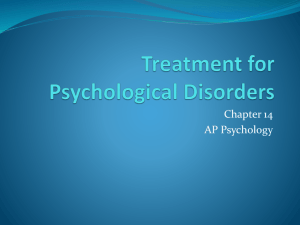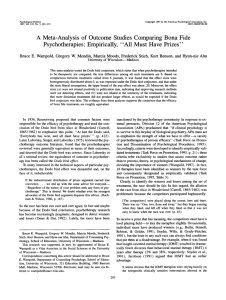Project Overview
advertisement
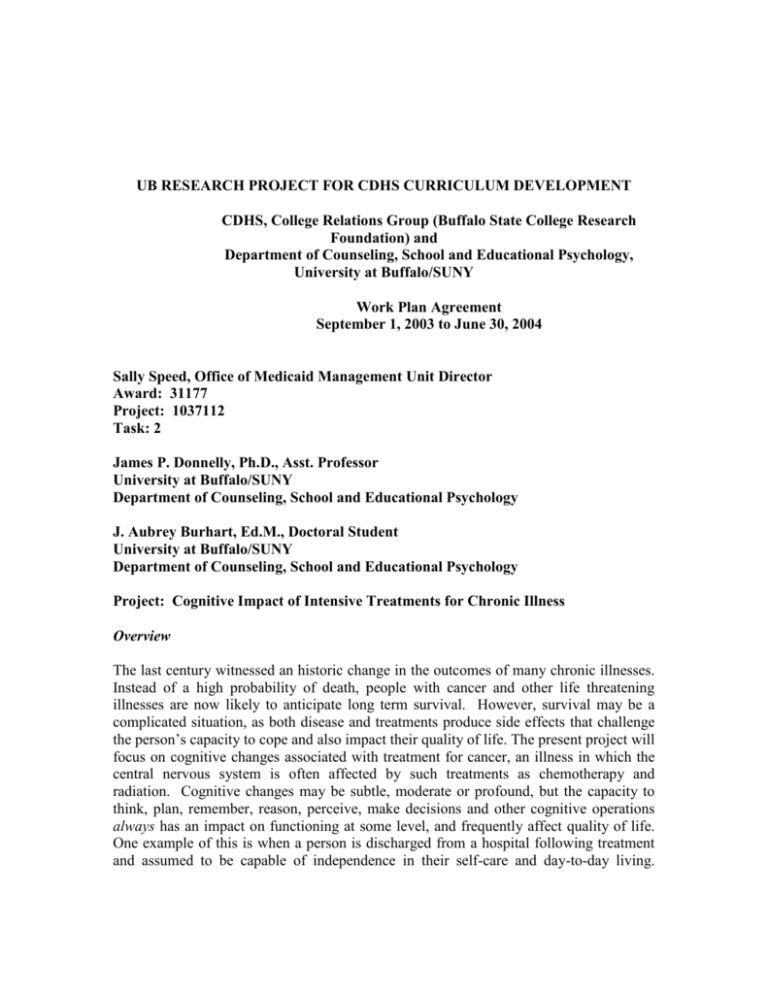
UB RESEARCH PROJECT FOR CDHS CURRICULUM DEVELOPMENT CDHS, College Relations Group (Buffalo State College Research Foundation) and Department of Counseling, School and Educational Psychology, University at Buffalo/SUNY Work Plan Agreement September 1, 2003 to June 30, 2004 Sally Speed, Office of Medicaid Management Unit Director Award: 31177 Project: 1037112 Task: 2 James P. Donnelly, Ph.D., Asst. Professor University at Buffalo/SUNY Department of Counseling, School and Educational Psychology J. Aubrey Burhart, Ed.M., Doctoral Student University at Buffalo/SUNY Department of Counseling, School and Educational Psychology Project: Cognitive Impact of Intensive Treatments for Chronic Illness Overview The last century witnessed an historic change in the outcomes of many chronic illnesses. Instead of a high probability of death, people with cancer and other life threatening illnesses are now likely to anticipate long term survival. However, survival may be a complicated situation, as both disease and treatments produce side effects that challenge the person’s capacity to cope and also impact their quality of life. The present project will focus on cognitive changes associated with treatment for cancer, an illness in which the central nervous system is often affected by such treatments as chemotherapy and radiation. Cognitive changes may be subtle, moderate or profound, but the capacity to think, plan, remember, reason, perceive, make decisions and other cognitive operations always has an impact on functioning at some level, and frequently affect quality of life. One example of this is when a person is discharged from a hospital following treatment and assumed to be capable of independence in their self-care and day-to-day living. Follow-up treatments are often crucial to long-term survival and compliance with medical plans may be severely compromised by impaired cognitive ability. Goals of the Present Project: The present project will consist of a review of the literature on treatments for cancer and identification of studies that have measured changes in cognition associated with treatment. The project will identify specific cognitive domains associated with particular treatments and their effects. Application: HTL 03 Chronic Care Institute Long Term Care Alternative Curriculum Rationale: This research will be used to assist Medicaid Trainers by providing background for training and supporting their statements in training on the kinds of cognitive issues that are most likely to affect the population receiving home and long term care. Objectives: 1) Review of literature on cognitive impact of treatment for cancer. 2) Development of a set of guidelines for interviewing people with possible cognitive deficits and for identifying options for follow-up with such individuals




